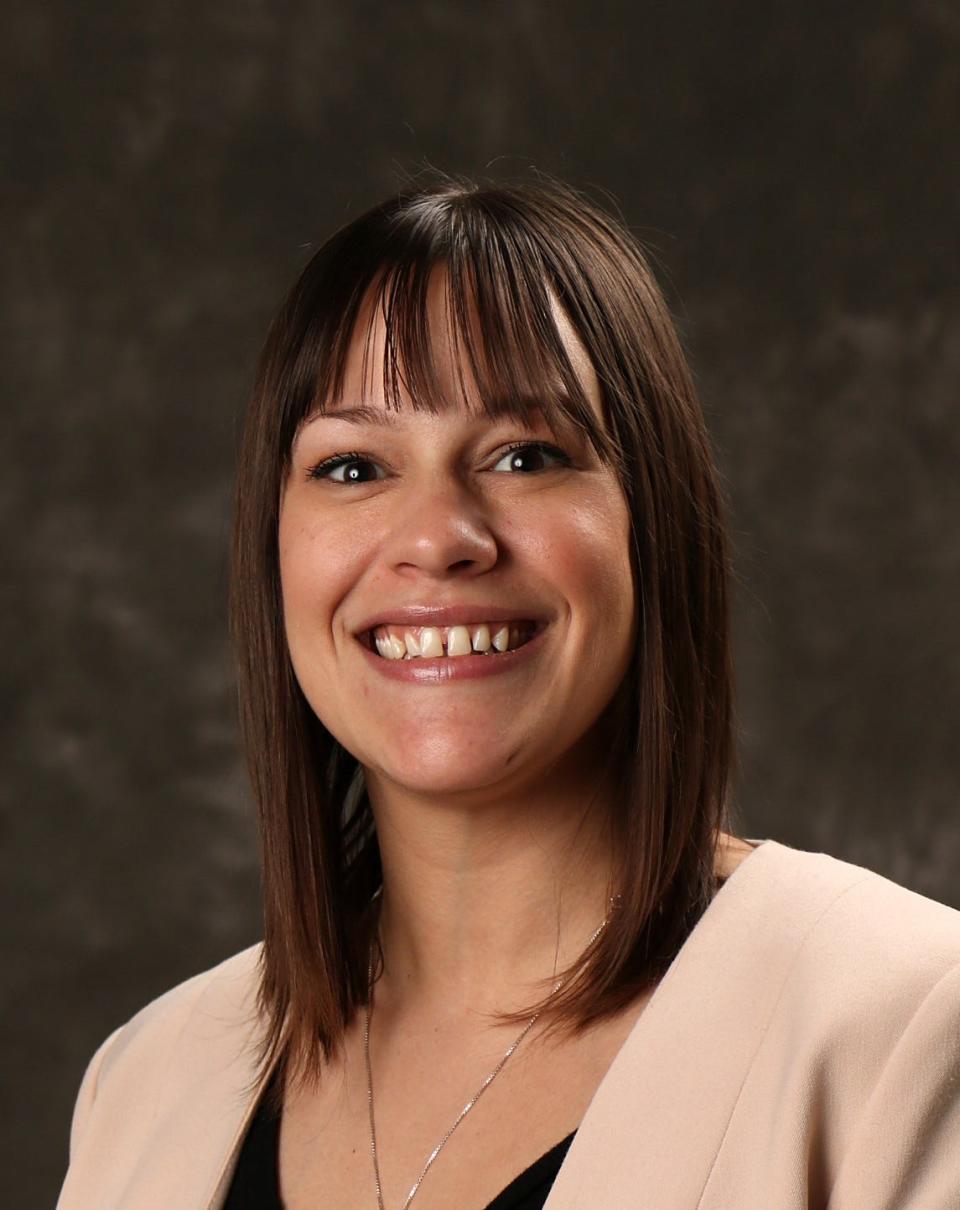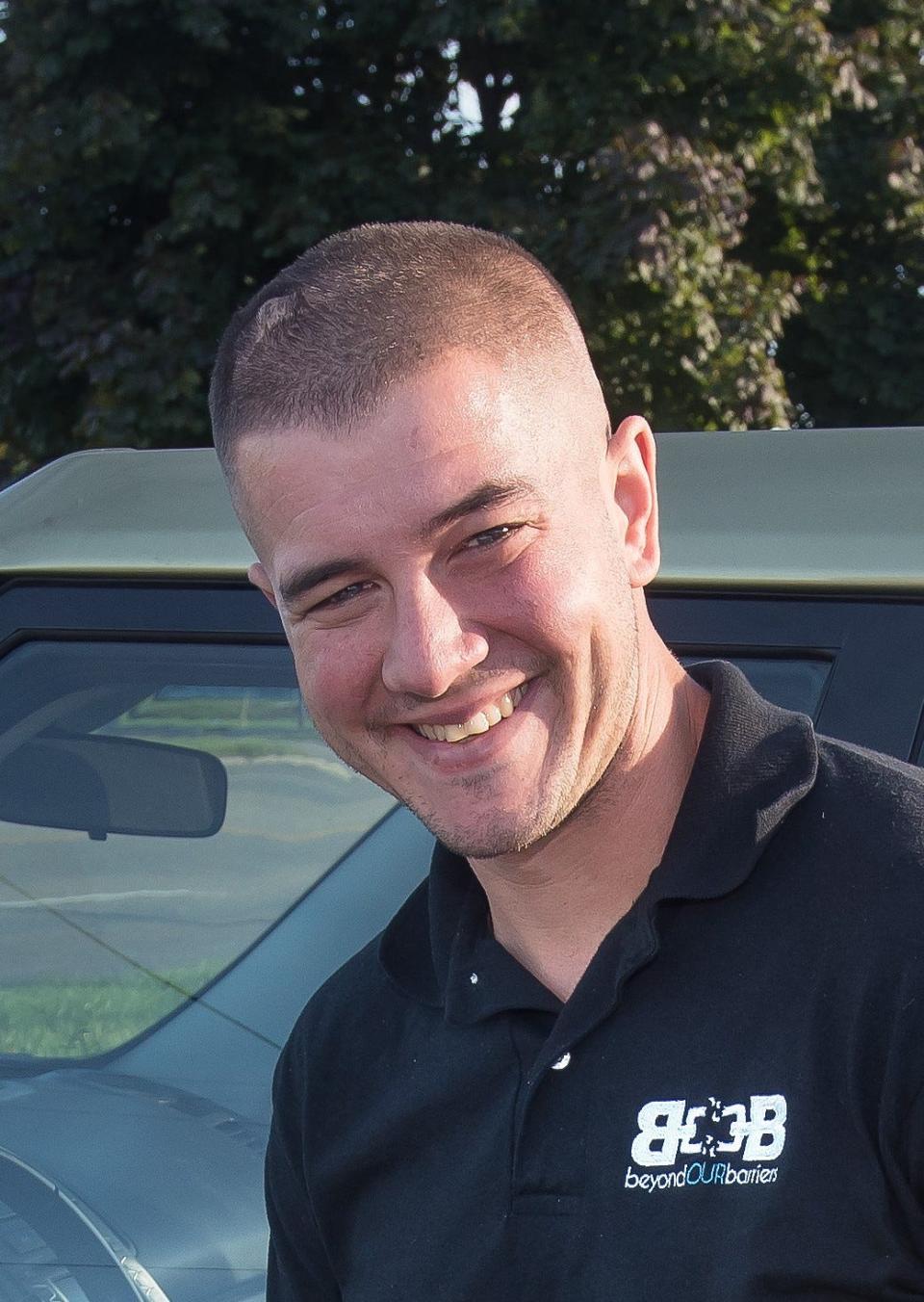Support efforts to make Michigan accessible, inclusive for people with disabilities
December 3 is International Day of Persons with Disabilities, a holiday the United Nations General Assembly established in 1992 to promote understanding and awareness of the issues faced by people with disabilities worldwide. Whether it's equal access to health, education, employment or other areas, people with disabilities are a diverse community offering different insights to enable their community to pursue individual and shared goals. Below are a few Michigan voices to help Greater Lansing better understand and support people with disabilities.
Overcoming barriers requires a commitment to inclusion

In the United States, one of every four adults has a disability. In Michigan, 7.4 percent of residents identify as deaf, deafblind and hard of hearing.
As we celebrate International Day of Persons with Disabilities, we must acknowledge that overcoming barriers faced by people with disabilities will require a commitment to inclusion. This day is an opportunity to highlight both the progress made and the systemic challenges that still exist for people with disabilities.
Ableism and discrimination are prevalent in society. As a Deaf person, I experience frustration when service providers refuse to hire sign language interpreters and tell me I can just read lips. I know the pain of constantly advocating for accessible communication and navigating challenges in a world not designed to accommodate people like me, but I also take pride in being Deaf. I do not see myself as different simply because I cannot hear. I find courage in who I am, and I find joy in the community I belong to.
There is power in sharing stories to advance inclusion. Think about everyday interactions you take for granted. As I think about this holiday, I think about stories that amplify our community’s experiences: of parents whose child needs deaf educational services, of individuals who use interpreters for communication and experience positive and negative interactions, of accessibility advocates on the importance of captioning videos, of people who can’t afford hearing aids because their insurance company won’t provide coverage, and of employers who willingly provide accommodations in the workplace.
True inclusion means embracing opportunities to learn together and from one another. To make Michigan an accessible and welcoming place for everyone, I encourage you to celebrate by finding disability advocates to follow on social media, researching statistics related to the disability employment gap, learning what ableism means, and appreciating the value in what people with disabilities bring to society.
Annie Urasky is the director of the Division on Deaf, DeafBlind and Hard of Hearing within the Michigan Department of Civil Rights.
Employers, don't overlook people with disabilities in your hiring process

Finding employees right now is challenging, isn’t it? I mean … not for my company. It’s not because we haven’t grown. Our company is flirting with triple-digit growth this year. A big part of our success has to do with having folks with disabilities on our team. Those many of you looked past or wrote off. And they’re overachieving for us.
I became an entrepreneur because, much like people with disabilities today, employers weren’t giving me a fair shot. So I took a bet on myself and it’s worked out. Today, I am able to do what many weren’t and still aren’t doing: Hire those same folks who, like me, are doubted but driven.
Now, hiring a person with disabilities is not a silver bullet. But it’s not the rusty nail that many employers see it as either. Like all people, there are spectrums of ability, desire, etc. There’s no guarantee your first or second hire will work out. It’s a risk, but so is every other hire.
It’s not hard and it's not expensive. I’d argue that it’s much easier than fishing in a bone-dry traditional candidate pool and there are many government-funded organizations able to help.
There are over 200,000 unemployed folks with disabilities in Michigan. Many of them want to work. Many of them are likely overqualified for some or all of the positions your company has open. But they’d probably still take the job.
So, what are you waiting for? First, audit the way you recruit and the vehicles you use, reevaluate the questions you ask to vet candidates and reach out to the aforementioned organizations.
And next time you’re struggling to find talent — ask yourself who you are eliminating before you even begin your search. And why is that?
Justin Caine is the co-owner of award-winning video production, Good Fruit Video. He's also a disability advocate, having founded a statewide award ceremony for folks with disabilities, and is a world-ranked para-athlete.
RELATED: Read more from LSJ opinion
Assistive technology allowed me to embark on a career path

As a person with a disability, I would like to share my road to employment in an inclusive and welcoming environment. After a sudden onset of blindness later in life, I embraced my new life skills and gained employment at Peckham, Inc. in Lansing at a high-volume call center.
Over 30 customer service representatives who are blind have been hired and our contribution to the culture and scope of our workplace is palpable. Every day I am impressed and honored to be working among talented and dedicated people with disabilities who have been mainstreamed into our work environment.
I can also say that it was not an easy task to develop my new life skills. There was a direct lineage from the acquisition of assistive technology, along with training and tenacious effort to acquire the skill necessary to compete in a diverse workplace. Participation in an ever-increasing competitive world of work is a challenge for people with disabilities, and even for those who are able-bodied. Assistive technology and equipment can be the catalyst to enable people who have a disability to gain a career that places everyone on an even threshold.
I recently presented a speech using a computer screen reader at the Science Summit at the 77th United Nations General Assembly. My demonstration was an example of how I utilize the computer in the call center. I listen to the computer and customers, access information and carry on a conversation simultaneously! The summit had representatives from four continents discussing the use of assistive technology to improve access to education, employment, independence and community participation among people with disabilities. Peckham, Inc. is fulfilling this mission and I am honored to be able to discuss our work environment and the administration, staff and workers who strive, through cooperation, for excellence.
Laurie Penfold is a resident of East Lansing.
This article originally appeared on Lansing State Journal: International Day of Persons with Disabilities: Advocate want inclusion

